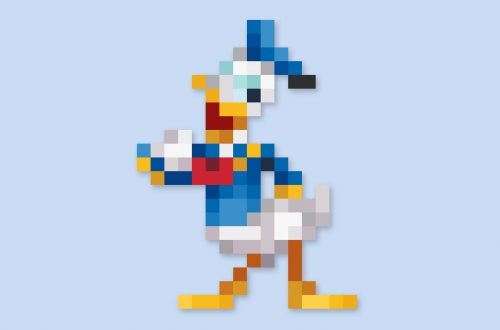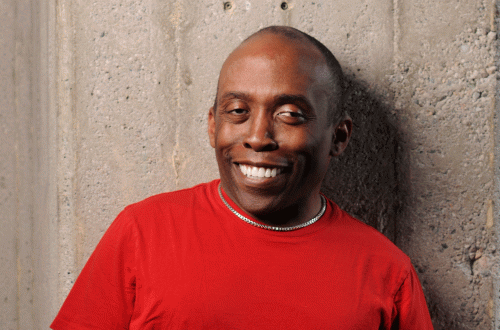If you don’t take a stand for who you are, what you believe, and share the validity of your experiences, someone else will write a narrative for you that most certainly will not be in your best interest. This post is all about platform.
Merriam-Webster.com defines “platform” as —
- plan, design
- a declaration of the principles on which a group of persons stands; especially : a declaration of principles and policies adopted by a political party or a candidate
I‘m going to expand that definition a little and add that I think of it as the place where a person’s voice or actions are best recognized — and I’m tossing in the audience unique to hearing those messages in those settings. Think of platform as “the zone,” that setting where you’re at your best, talking about or doing something you’re known for and those who come to listen to you attentively.
Publishers look for writers who not only have writing skills, but who have a platform. The publishers’ definition includes a broad base of readers, customers, or fans who will readily purchase their books. This makes the author look profitable. Publishers want to recoup the money they invest in editing, printing, marketing, and distributing your book. As you know, it’s all about the bottom line. Think of Mick Jagger, Martha Stewart, Ta-Nehisi Coates, and a host of others from about any field imaginable.
The same is true in the entertainment industry. Talent agents look for clients who have substantial credits, and charisma doesn’t hurt either. If you’ve got a solid résumé — especially if you’re in the early stages of your career — that intimates to the agent that while he may not have seen your performances, notable people were willing to hire you for their production. A good résumé is always a good thing … although there’s no underestimating the influence of nepotism, favoritism, and the fabled casting couch.
Celebrity
At first glance you might think, oh, platform is celebrity, but that’s not necessarily the case. Our friends at Merriam-Webster, say that “celebrity” is —
- the state of being celebrated (widely known) : fame
I stand four feet tall, and since forty-eight-inch tall people are a bit out of the ordinary, that makes me easily recognized and somewhat known. For instance, if I’m seen anywhere more than half a dozen times, the people who work in these places generally consider me a regular. Trust me, I’ve been in this body for a long time. That guy eats dinner here all the time. He likes sitting in booths rather than tables, has a Manhattan every time he’s here. Celebrity? On a small scale. No pun intended. So for our sake, and just go with me on this, I define celebrity as a person who is recognized on sight, but platform is an area of life or principles/beliefs a person or group may have or is known for.
The Way of the World
Example 1: My Mother. Most people use their platform. Take my own mother for instance. She taught reading and was an elementary school teacher for thirty-eight years. She is best known as a very good teacher. How do I know? Because the month hasn’t gone by where the following scene or one similar to it hasn’t played out in the grocery store, at the gas station, Starbucks, and other places.
“Excuse me, but you’re Mrs. Rivers’s son, aren’t you?” Someone several years my senior asks.
“Yes,” I answer. I’m so familiar with the conversation that I can predict my lines in this dialog, as well as the other person’s, down to the last consonant.
“She was my favorite teacher! How is Mrs. Rivers?” The person asks, holding their breath in anticipation.
“She’s doing fine.”
“Is she still teaching?”
My response for a while was, Yes, she is. Then it became, No, she’s retired now.In either case, I knew to ask the following question. “Which year did you have her as your teacher?”
They proudly tell me the year my mother taught them and recount a humorous anecdote that bears the earmarks of something my mother would say or do. And without fail, they all end their stroll down Memory Lane with the phrase, “ . . . she probably won’t remember me, but please tell her ‘so-and-so’ said ‘hello.’”
“I certainly will,” I respond and watch the former student continue on their way as if they had just received an “A+” in Social Interaction from my mother.” ¹
My mother leverages her experience and expertise as an educator in her everyday life. When she interacts with folks on boards at her church or in community activities, she doesn’t have to preface everything with look, I know what I’m talking about because I taught for thirty-eight years, her reputation as well as her comportment is that of a proficient and knowledgeable educator. (In case you’re wondering, she’s of average height.)
Example 2: Benjamin Sledge. His Medium profile says, “Storyteller, veteran, creative liar, designer. I like to bleed stories about my own shortcomings and adventures.” If you’ve read his writings, you know that he builds his following by successfully mixing his pre-, during, and post-combat experiences along with the highs and lows and everything in between of everyday life as part of his platform.
Most veterans are liked and highly regarded, and their experiences are somewhat intriguing to most people, so there’s an audience. And if you throw in other veterans and their families, there’s an even larger audience. Sledge has successfully leveraged his platform as a veteran and a writer, and has used that to build an even larger platform of helping people sort through life’s challenges.
Example 3: Donald Trump. Known previously as a successful, New York wheeler-dealer, real estate mogul. That reputation caught the eye of Survivor producer Mark Burnett, and poof! — in January 2004, The Apprentice was born. The success of the show was a result of the public’s familiarity Donald Trump’s platform as a New York real estate tycoon.
Example 4: Colin Kaepernic. The professional football player used his platform as the quarterback for the San Francisco 49ers to bring attention to racial inequities in America. For more on that topic, see my essay here.
Moving on.
Earvin “Magic” Johnson, Mother Teresa, Nelson Mandela, Princess Diana, all were respectively known for work in particular fields — expertise in basketball, membership in a convent, seditious acts acts against the state, and membership in Britain’s royal family — but used their platform, the endeavors they were most known for at the time, to bring attention to HIV/AIDS, the plight of the poorest of the poor, Apartheid, and the banning of landmines, respectively. All issues larger than the personalities working on their behalf.
So you see, the existence and use of platform to bring attention to other issues for the betterment of society is nothing new. There are even those who have demonstrated against then current systems to bring attention to larger issues.
Betty White, Bono, Cesar Chavez, Gloria Steinem, Jesse Williams, Malcolm X, Martin Luther King, Maya Angelou, Muhammad Ali, Rosa Parks, Sidney Poitier, and Stevie Wonder to name a very few, all have used their platform to bring attention to issues that serve society’s greater good. There’s dozens more people who have led demonstrations, movements, et cetera. Who comes to mind for you?
Size Doesn’t Matter
Unlike grandiose and glamorous worlds like publishing, sports, and Hollywood, your platform doesn’t have to exist on a global scale, but your platform has to be something you believe in and your attachment to it should be authentic as today’s BS meters have evolved into very finely tuned instruments that give people the ability to spot a fraud from fifty paces.
Where do your interests lie? What do you stand for? Where do you draw the line? What are you passionate about? How are you going to leave the world a better place than you found it? What are you a proponent of?
I know people who are passionate about children getting a good education. Clean water. Care for the infirm. Sports for kids. Animal rights. The arts. Building homes. The homeless. Social justice. Knitted caps for cancer patients. The possibilities are endless. Social justice. Knitted caps for cancer patients. Parsing truth from lies. Summer camp for kids with terminal illnesses.
Your platform doesn’t necessarily have to be a cause. Your platform can consist of where you are right now in your life. Single parent? Own it. Fat? Tell us about the challenges. Weekend dad? Single longer than you ever dreamed you would be? Republican in a blue state? Democrat in a red state? Biracial? Bisexual? Just plain ol’ happy with your life? Own it and share it. Grabbed the brass ring and now having second thoughts? Well, okay, you can share your story, too. Tell it like it is. Unsure of how to stop being a misogynist? Let it rip. Believe it or not society is also benefited when we share our stories. See, it’s always in the situations that we think the only ones to ever face, the circumstances that are too shameful, too overwhelming, it’s those deepest, darkest moments that are common to the human condition. That’s where we find connection and life takes on meaning. Share your convictions and stories. Share the lessons you’ve learned in the way that you live.
What Am I Saying?
You there, skeptic! I see you. You have a question. Me? What’s my platform?
I thought you’d never ask! I’m a forty-eight-inch tall, black man who is Christian and gay. I have a challenge or two with which to contend: namely, other people’s perception. Don’t get me wrong, I love who I am. I’m not obsessed with other people’s thoughts of me, but when those thoughts impede on my rights, then we have a problem.
I’ve worked through a lot. I’ve been the “other” in just about every imaginable setting. There’ve been plenty of people who’ve treated me in a way that aligned with their misconception of who I was as a black man or a short-statured person or a Christian or a gay man. I know a thing or two about bias, prejudice, and learned how to transcend it.
Embrace all that you are strive to become all that God created you to be.
My platform? Living boldly with uthenticity, honesty, integrity, and treating others with care and respect, like valued human beings. I’m a big proponent of treating others as I’d like to be treated, karma, and the law of sowing and reaping.
Final Thoughts
No matter what you do, do it from your center. Do it with conviction. Do it from your heart. It’ll show. There’s a tendency to think that living from your center is a sign of weakness. Nothing could be further from the truth. In this age of insta-fame, it takes great courage to live out your convictions. Do the work, the payoffs are unimaginable. In essence, your platform is more than your core beliefs, it’s who you are. And if you can’t accurately answer that most basic question (who are you?), how can anyone else?
Love yourself.
Love one another.




